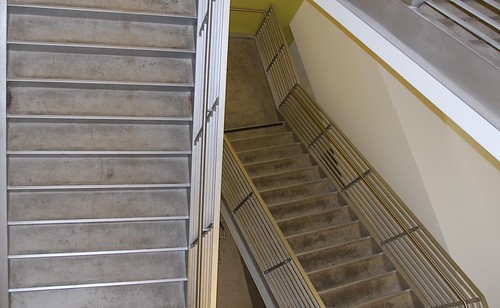You would think life would be easier than it sometimes seems to be.
Unfortunately, we often make it harder on ourselves. Because we make the same mistakes over and over. And we put off taking the right steps to improve our life and maximize our potential.
Left alone, most of us rely on our own instincts and understanding. But, too often, our instincts are wrong. Without even realizing it, we increasingly obsess on control, feed our ego, react emotionally, lapse into bad habits, and focus on ourselves.
And, over time, we slowly notice that things are going wrong, and our personal and family life suffers. Until, somewhere along the way, that favorite substance or behavior that we use to feel better for a while grows from a habit into an addiction.

But we don’t tell anyone about it. Because our denial became guilt, which grew into burning shame and stigma. So we hide that part of who we are from the world. And, even if we remain highly-functioning at work, our fear leads us into a life of quiet desperation.
I know. Because I’ve been there.
Education for Taking the Right Steps
Unknown to most people, there is a proven approach that can improve our life and lessen the risk of compulsive habits and addictions. The world’s most famous life improvement program, which has been used successfully by millions of people all over the world, is readily available to anyone.
But, amazingly, only a limited number of people know about it: those who are in recovery.
Most others have no idea that the Twelve Steps and other recovery principles apply as much to the rest of our life as they do to dealing with addiction. They provide practical tools and techniques we can use to improve our life emotionally, personally, and spiritually. They help us move …
- From a fixation on control to balancing acceptance and courage. So we calmly let go of things we can’t control and acquire the conviction to change what we can.
- From pride to humble self-improvement. Which is what happens when we become more self-aware and begin to work on our own short-comings.
- From indifference to connection and empathy. And, by so doing, we acquire the ability to forgive other people’s faults and maintain good relationships.
- From impulsivity to intentionality and steady progress. As we establish the habits of assessing how we are doing each day and taking time to meditate on our choices.
- From self-absorption to service and significance. Which becomes a wonderfully fulfilling lifestyle as we seek to be a positive influence and serve others on a regular basis.
This life improvement program is available to anyone, and we can learn to prevent addiction. But we must commit to taking the right steps.
We Need Some Coaching Along the Way
Anyone can improve their life if they will commit to taking the right steps. It starts with a choice, and it continues with education. But, to become the best person—spouse, parent, friend, employee, leader—we can be, most of us can use some help.
World-class athletes use a coach. So do business executives and people planning their finances or career. Anyone developing a skill can benefit from one, and life and wellness coaches are very popular these days. And for those dealing with addiction, a sponsor or coach is a must-have.
Who can benefit from a coach? Quite likely, just about anyone. But what type should we use?
Anyone wanting to prevent addiction needs a coach with experience in recovery. And, similar to how the Twelve Steps provide education for our overall lifestyle, a recovery coach can also help people enhance their wellness, improve relationships, and even become more effective at work.
There is a top secret formula to improve our life and protect against addiction. Recovery coaches can help us learn to use it.
Question: Do you believe taking the right steps leads to a more effective lifestyle?
Action: To learn more, check out the book STEPS: A Daily Journey to a Better Life.
Photo by Wetsun  Photo by wbaiv
Photo by wbaiv 

